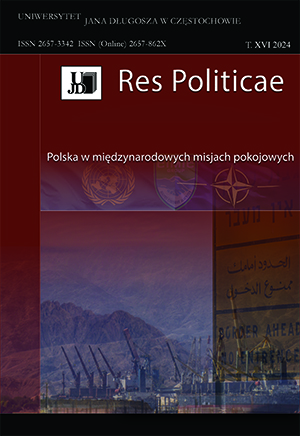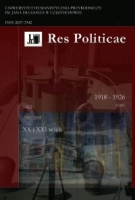Functioning of the medical component in the Polish Military Contingent in Lebanon in 1992–2005
Keywords:
UNIFIL, Polish Medical Company, UN Hospital in Lebanon, Polish Military Contingent, PolMedCoyAbstract
Purpose of the article is to discuss service of the Polish Medical Company in the United Nations Interim Force in Lebanon (UNIFIL). It describes the subject of preparation and training prior to the mission, service and tasks of the PolMedCoy, as well as contacts with other national contingents and local population. At the beginning of 1992 Secretary General of the United Nations Butrus Butrus Ghali has invited Poles to take over the UN Hospital after Norwegians and Swedes who were retreating to their countries. Polish Medical Company (PolMedCoy) in Lebanon under col.doc. Jerzy Banach started their service on 27th of April 1992, providing medical and dental care for all of the UNIFIL troops, counting from 5 to 7 thousand people, depending on the era of the mission. They were also trying, to the best of their abilities, to provide care to local population, deprived of medical services due to the armed conflict in the region. PolMedCoy ended it’s mandate in 2005, but other parts of the Polish contingent, engineering, logistics and renovation companies, continued service until 2009. Service of the PolMedCoy in Lebanon is important for a couple of reasons. Firs, it blazed a trail for companies to come. Social aspects of it’s participation in the missions cannot be overlooked. By providing medical care to other contingents and local people, Polish personnel of the UN hospital was on the frontline of contact with these groups, they were representing our nation and building it’s good name. Participation in the mission also created a great learning opportunity for Polish personnel to get accustomed with modern equipment and practice new procedures, such as the MEDEVAC service, a fairly new technique for Poles at the time. Issues mentioned above indicate, that PolMedCoy played an important role in the participation of Polish contingent in UNIFIL, as well as in broader history of Polish peacekeeping effort and prove the topic to be worthy of further exploration.




